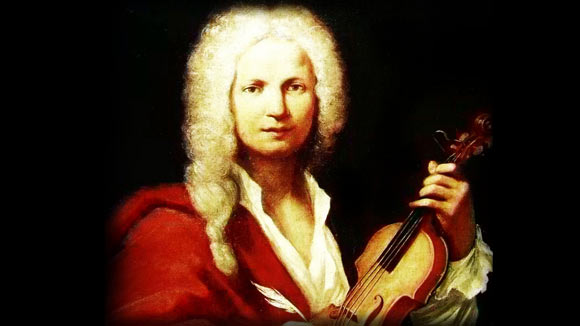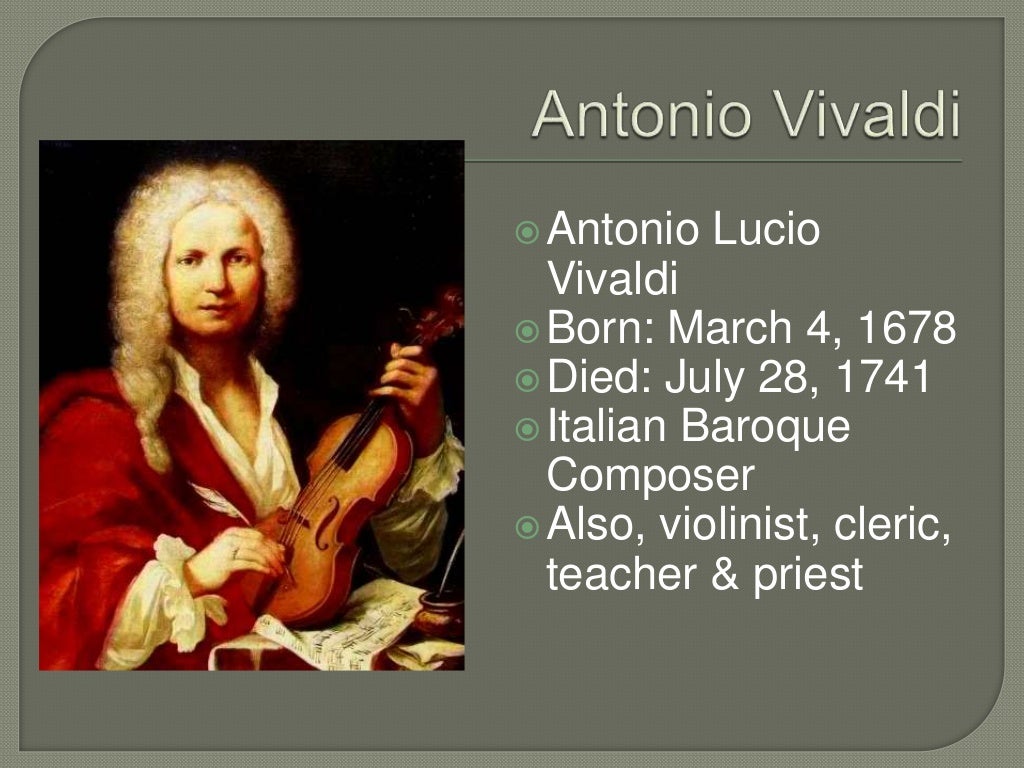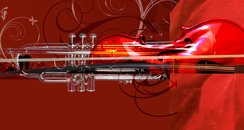
While working there, he composed many works. The hospital was his employer until 1715 and then again from 1723 to 1740. That hospital, known in Italian as the Ospedale della Pieta, was an orphanage. His scarlet mane earned him the nickname “The Red Priest.” That's translated from the Italian, il Prete Rosso.Īlso in 1703, Vivaldi landed the job of “master of violin” at the Devout Hospital of Mercy in his hometown of Venice. Regardless of the reason, he never left the priesthood.

Others theorize that he stopped citing mass because it interfered with his composing. Many believe he abandoned his priestly duties because of poor health. Vivaldi was ordained in 1703 although he stopped performing priestly duties three years later. The second theory about his rapid baptism may have been the reason behind his mother dedicating him to the seminary. Vivaldi was sort of a child prodigy and a virtuoso on the instrument.
#ANTONIO VIVALDI COMPOSITIONS HOW TO#
His father was a professional violinist, founder of a musicians' union, and probably a composer.ĭad taught his son how to play the violin. He suffered from what was described as tightness in the chest. Even though Vivaldi lived to be 63, his health was poor. The quick baptism may have been a response to the Earth moving. Two, earlier in the day Venice suffered an earthquake. One, he was in poor health and there were concerns he was going to die. The reason for a hasty baptism is unknown. Unusual for his era, he was baptized by his midwife shortly after birth. "An anonymous portrait in oils in the Museo Internazionale e Biblioteca della Musica diīologna is generally believed to be of Vivaldi and may be linked toĪntonio Lucio Vivaldi was born in Venice on March 4, 1678. That's a tragedy difficult to comprehend especially when one considers how popular and successful he was during his lifetime. Had it not been for the names listed above, Vivaldi's music may still be buried. Nowadays, Vivaldi is regarded as one of the greatest baroque composers of all-time. His biography of the composer came out after World War II and is still considered an important and significant work.įrom there, musicians like Arturo Toscanini, Olga Rudge, Louis Kaufman, and Alfredo Casella took over the role spreading the Italian composer's genius. Pincherle began his Vivaldi scholarship in 1913. It was furthered by musicologist Marc Pincherle.


Kreisler's musical ruse started the Vivaldi comeback. At the time, middle of the 20th century's fourth decade, Vivaldi was a virtual unknown.Įven his most seminal work, Le quattro stagioni, better known as The Four Seasons, was lost to the annals of time. Of course, the critics he angered were originally impressed by his compositions.Īnother composer's reputation he co-opted was that of Antonio Vivaldi. He made that comment in 1935 after critics derided him for writing works and passing them off as oeuvres from composers like Pugnani and Tartini. Violin master Fritz Kreisler once said, “the name changes, the value remains.”


 0 kommentar(er)
0 kommentar(er)
